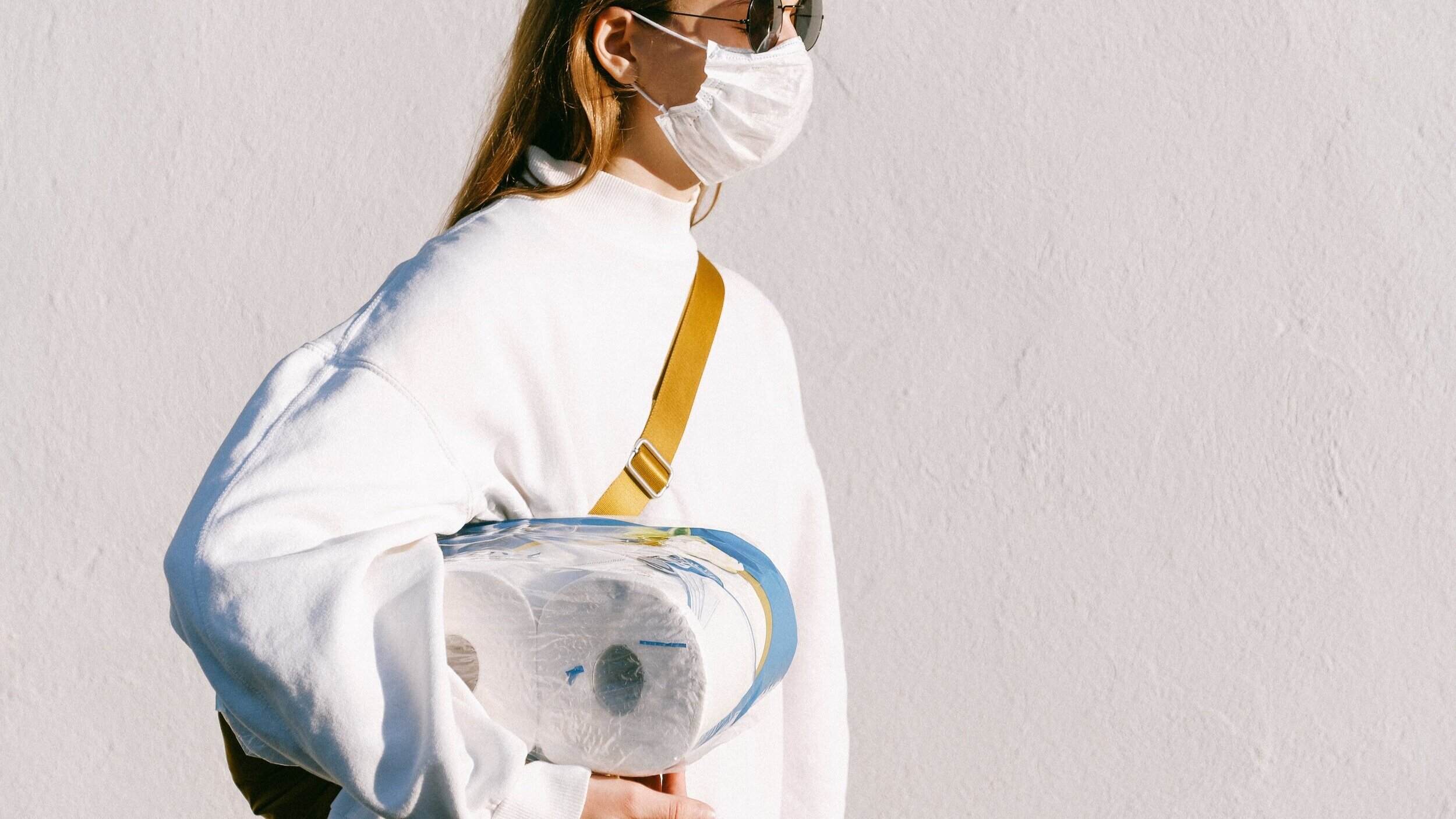Dealing with Anxiety During Coronavirus
Proven ways to find calm during the storm
During times of crisis, like the one we’re facing with the coronavirus pandemic, a lot of us feel anxiety’s shove. In many ways, it’s surprising that we don't all have anxiety. In fact, how we as humans evolved to respond to threats is what has kept us going for as long as we’ve been alive. When we were early humans, hearing the snap of a twig would evoke a split-second question of whether we should fight or run or freeze. In our modern society, we are asked to answer this same question every day: we face conflict in the workplace or at home; our sense of security is threatened by drops in the stock market or job loss; or by threats to our health and well being. The reality is, we all experience anxiety when such topics arise, and especially when we face an invisible enemy in our community—enter coronavirus.
When this “alarm” or startle goes off, it’s because our brain defaults, or more accurately stated, gets ”hijacked” by our amygdala—the part of the brain that controls our response to real or perceived threats. In these moments, our body is flooded with adrenaline, which causes our heart to beat faster, priming us to take action. Ideally, when we act we drain ourselves of this energy and return to our baseline. However, when the stressor is constant, and we don't have an outlet for our mind and body this alarm can stay on, causing clinical levels of anxiety.
People with anxiety disorders, like generalized anxiety disorder or post-traumatic stress disorder (PTSD), face this response more severely and more often, and for what may appear to be a lessor trigger. For example, ”Will my partner be angry that I chose the wrong bread?" "What if I chose the low sodium broth?” “My boss barely said ‘hello’ to me, I’m sure I’m getting fired.” To the anxiety brain, these questions feel like matters of life and death.
The coronavirus has darkened the doors for all of us—some worse than others. Our worldview changed in a matter of a few days to weeks. Interestingly, some of my clients have felt more connected to the world—a sense of,“we’re all in this together.” Whereas others float from feeling OK, to being tasked with answering questions of who they are, ushered in by the artificial space created by social distancing.
For people facing untreated anxiety disorders, the coronavirus may have a revelatory effect, with every decision, supported by the onslaught of 24 hour news, feeling like a matter of life and death.
While the action of social distancing is wise and part of the way we do our part during these difficult times, being told to stay inside and away from support can make things more difficult, and can instead be damaging if steps to remain connected fall by the wayside. For some people in my practice, therapy sessions have become the only space for them to talk with another person about what’s really going on.
The coronavirus has turned our collective alarm on. People who don't normally identify as being anxious are feeling anxiety’s grasp. For some of us, this is our first time dealing with a serious "life or death" stressor and we’re still trying to figure out how to respond. Many are not seeking help or are trying to cope in other ways, like drugs or alcohol, which can be effective in the short term, but cause serious problems in the long term.
Therapy can give you the tools to feel settled now, and when you’re ready, the space to explore the root of how you got here in the first place (essential knowledge for breaking through repeated patterns of behavior). If therapy isn't an option for you, find someone in your personal life who you can talk to, read books on anxiety, learn how to meditate on YouTube, or attend a local support group (many of which are free). All this to say, find and do what works for you.
Consider the following: what you focus on controls you. Thus, if you want to control your mind, you must learn how to control your attention (mindfulness). For anyone facing anxiety, diagnosed or not, my encouragement would be this: do not to try to get rid of your emotions, but learn to develop a relationship with them, as this gives you a say in how you do or don’t respond to them when they start sounding off.
Managing our anxieties in the middle of a global pandemic can be challenging to do on our own. If you're needing help with anxiety, contact us today to get started or check out our FREE webinar on anxiety during covid-19 by clicking the picture below:
Free Anxiety Webinar:
Gain a better understanding of anxiety and why it shows up
Learn some new ways to deal with anxiety more effectively
Get some practical ideas on how to make the best of out #quarantinelife
About The Author
Isaac Smith, MAT, LCSW, FNTP is the founder of Whole Wellness Therapy, and serves as the Executive Director. Isaac gives presentations on topics including addiction, trauma, grief and loss, and anxiety, in addition to providing professional consultations. Prior to founding the practice, Isaac worked with UC Davis Health to help them build and launch their substance use disorder treatment program as well as their Collaborative Care program, which focuses on treating chronic depression and anxiety in older adults. Committed to life-long learning, Isaac holds a master's degree in Theology and has advanced training in nutritional therapy. Currently, he is pursuing a doctor of psychology degree at the Wright Institute in Berkeley, CA.






